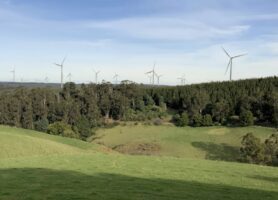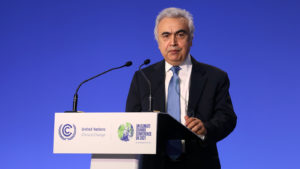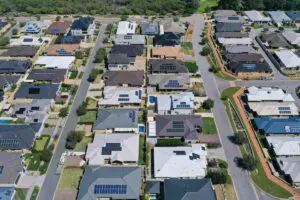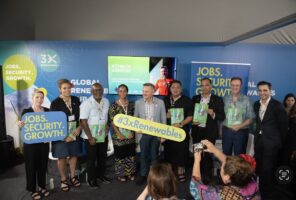The ACT has slammed the Turnbull government’s “complete capitulation” on the emissions reduction pillar of the National Energy Guarantee, saying it has killed off any hope the much maligned policy will do anything to address climate change – and any chance it might win the approval of the states.
As we report here, the federal government announced it would not attempt to legislate an emissions target to underpin the NEG, a policy designed specifically to weave action on climate change into the fabric of the national energy market.
At the same time, the Prime Minster, Treasurer Scott Morrison and energy minister Josh Frydenberg assured they would continue to push down power prices – an effort they would reinforce through the adoption of the recommendations from the Australian Competition and Consumer Commission review.
But those promises failed to distract from the fact that a policy that was supposed to unite climate and energy policy, and to cross party lines, could not even be agreed on by the Liberals – just as the states and territories last week predicted, when they deferred their deliberations to after the Coalition party room vote.
“The NEG is dead,” said ACT minister for climate and energy Shane Rattenbury, in a scathing statement released early Monday afternoon.
“It was hailed as a policy to address the ‘trilemma’ of prices, reliability and emissions reduction. Instead, federal energy policy is being determined by the worst, climate change denying elements of the Liberal Party,” he said.
“The federal government has now completely capitulated on emissions and climate change, and abandoned the Paris Climate Change commitments.Energy consumers will continue to pay for the federal government’s policy chaos.”
Rattenbury also said that while the ACT supported some of the ACCC’s recommendations – including the underwriting of new generation capacity – the federal government would need to ensure they were implemented as intended, in the interests of consumers.
“We fear that these recommendations are likely to be instead warped into expensive subsidies for polluting, uneconomical coal – guided as Mr Turnbull is, by extreme views on coal and climate change,” he said.
And he reiterated that, while the government claimed to be singularly focused on cutting power prices, taking action on climate change, and supporting the roll-out of more renewable energy, were some of the best ways to drive down the cost of electricity.
Elsewhere, renewable energy industry lobby group the Smart Energy Council called on voters to “choose sides” in Australia’s ongoing energy policy war, and show their support for renewables and the environment.
“Today is such a significant day…. it is the day the government walked away from any climate change policy, and any support for the renewable energy industry,” said Wayne Smith, the manager of government relations at the SEC.
Speaking as part of a SEC webinar on Monday morning, former Clean Energy Finance Corporation CEO Oliver Yates said it was “totally unacceptable” to have government policy that ignored the science on climate change.
“What we wanted to do was end up with the lowest (electricity) prices possible given the emissions constraint.
“But even (a reduction of 2 per cent in a decade) was too much for the LNP… We have to deal with these people who deny the need to balance our obligations to the environment and our obligations to achieve the lowest price,” Yates said.
“Addressing emissions is nothing more than paying for insurance. Ignoring it is only going to lead to enormous loss in the future.”
As for what this would do to energy market investment, Yates added, that was a “disaster.”
“For investors, we’re looking at an environment that is completely unknown as of today,” he said. “For every asset class – whether you’re in coal, gas or renewables right now, you wouldn’t know what to make of this.
“This is a government that had no intention of addressing emissions… We’ve now gone from the energy trilemma, back to the energy dilemma, because the government refuses to believe in emissions, in climate change.
“(Victorian energy minister) Lily D’Ambrosio was exactly right about Canberra not being able to get their act together,” Yates said.
“This is the complete capitulation to the far right of Australian politics,” said SEC chief John Grimes. “These are the people who want to lock in coal, they want to lock out renewables, they don’t want to make the transition.
“We could be in election mode very quickly. It’s absolutely in the realm of possibility,” he said.
Speaking as part of the same SEC webinar, Melbourne University’s Simon Holmes à Court said this latest development showed that the future of energy in Australia was now all back within the realm of politics.
What was required, he said, was a wholesale change in political messaging.
“In a carbon constrained world, Australia wins,” he said. “We’re the Saudi Arabia of renewable energy, we’ve got it all.
“That message of hope, rather than fear, has got to get through.”







